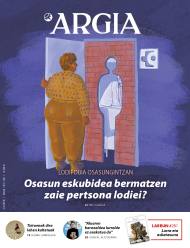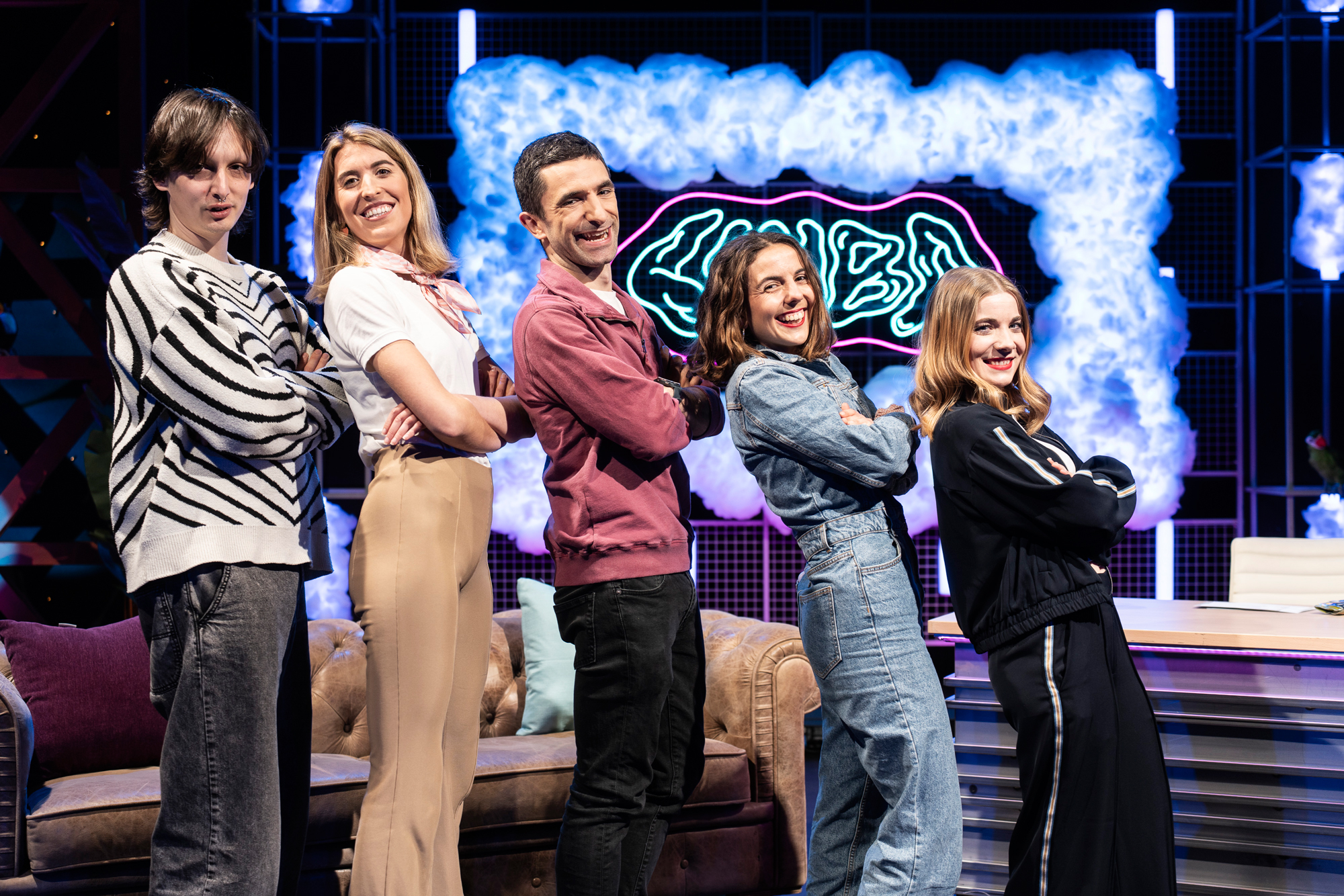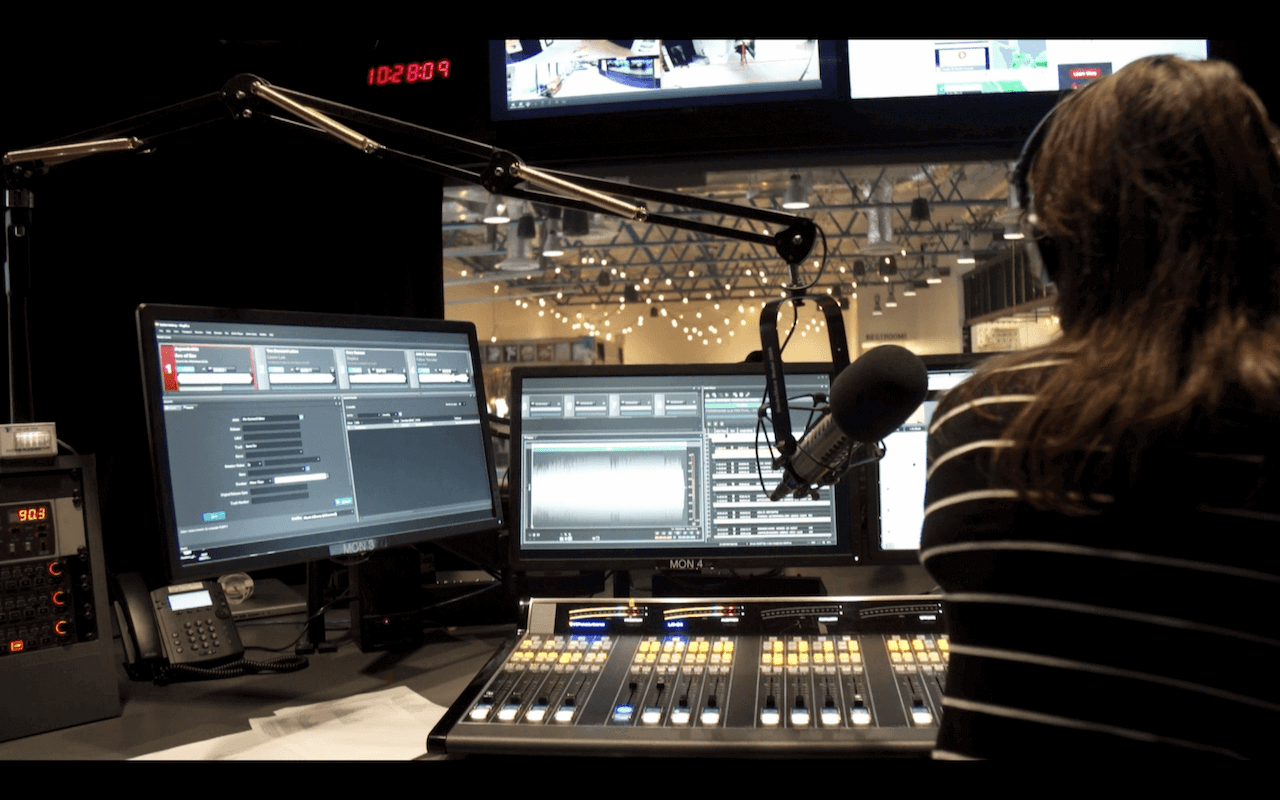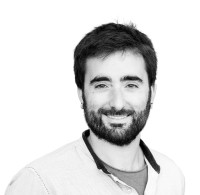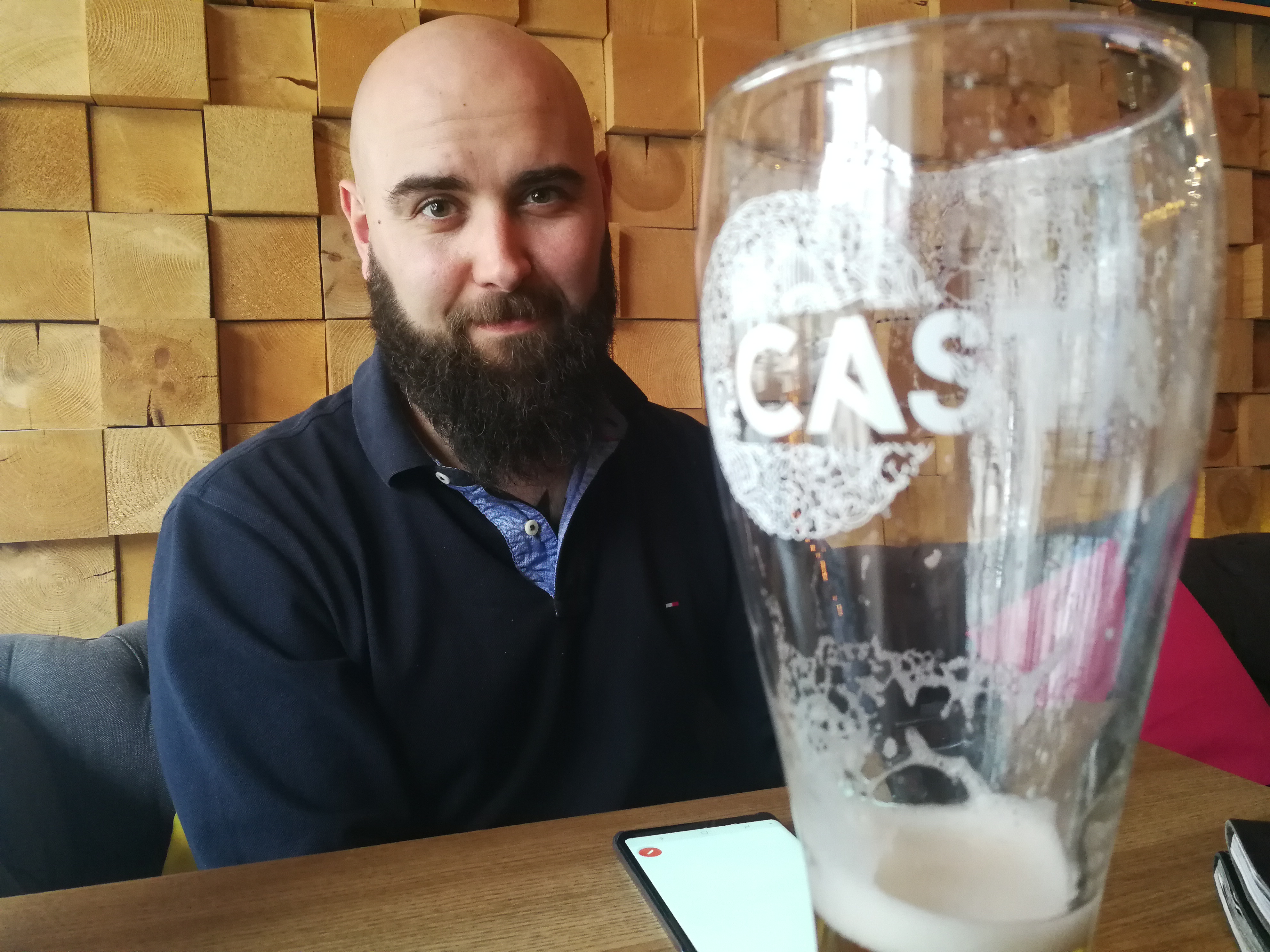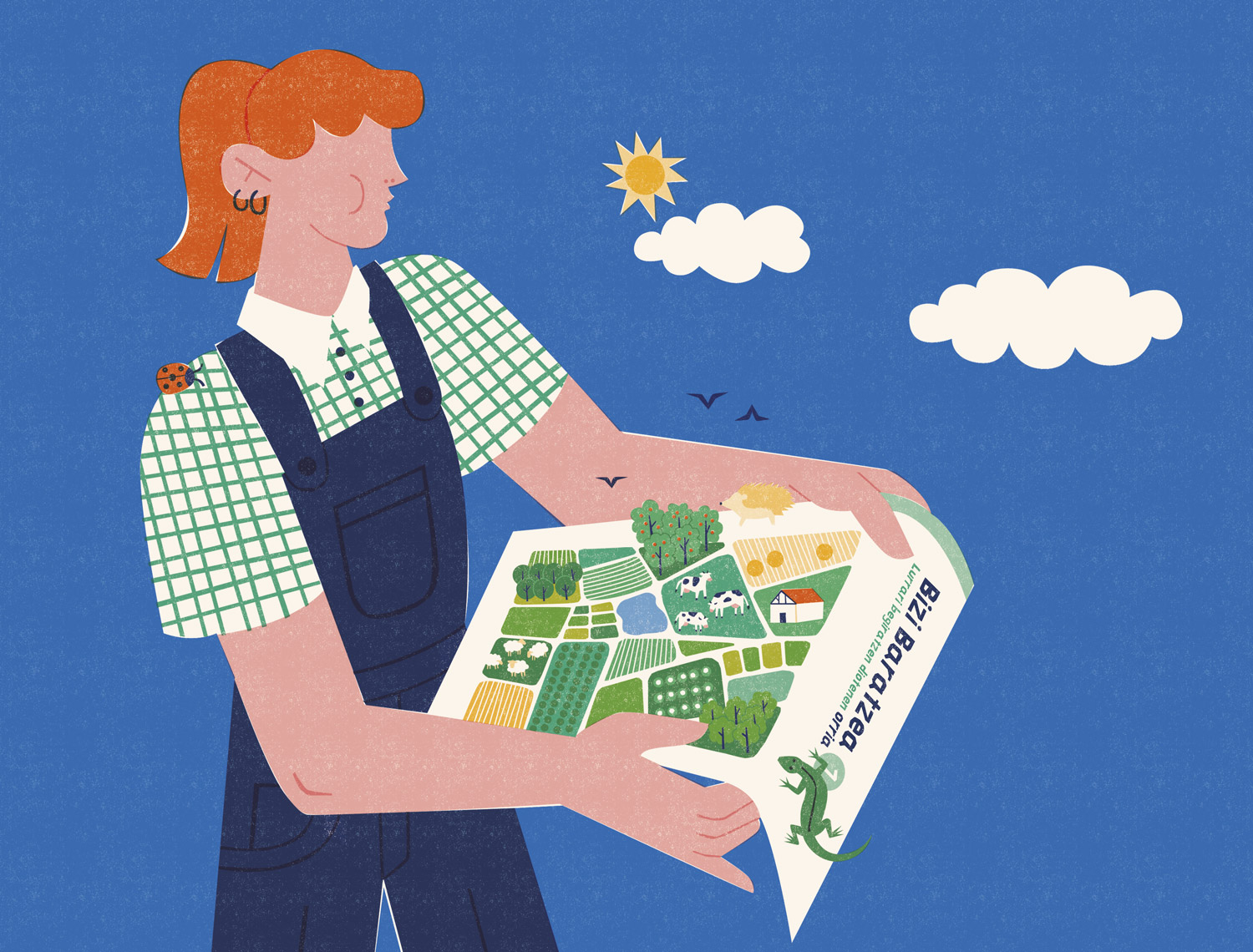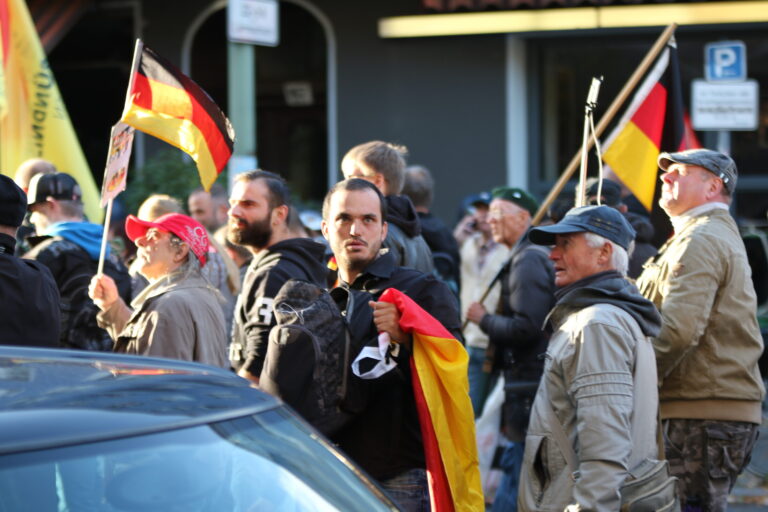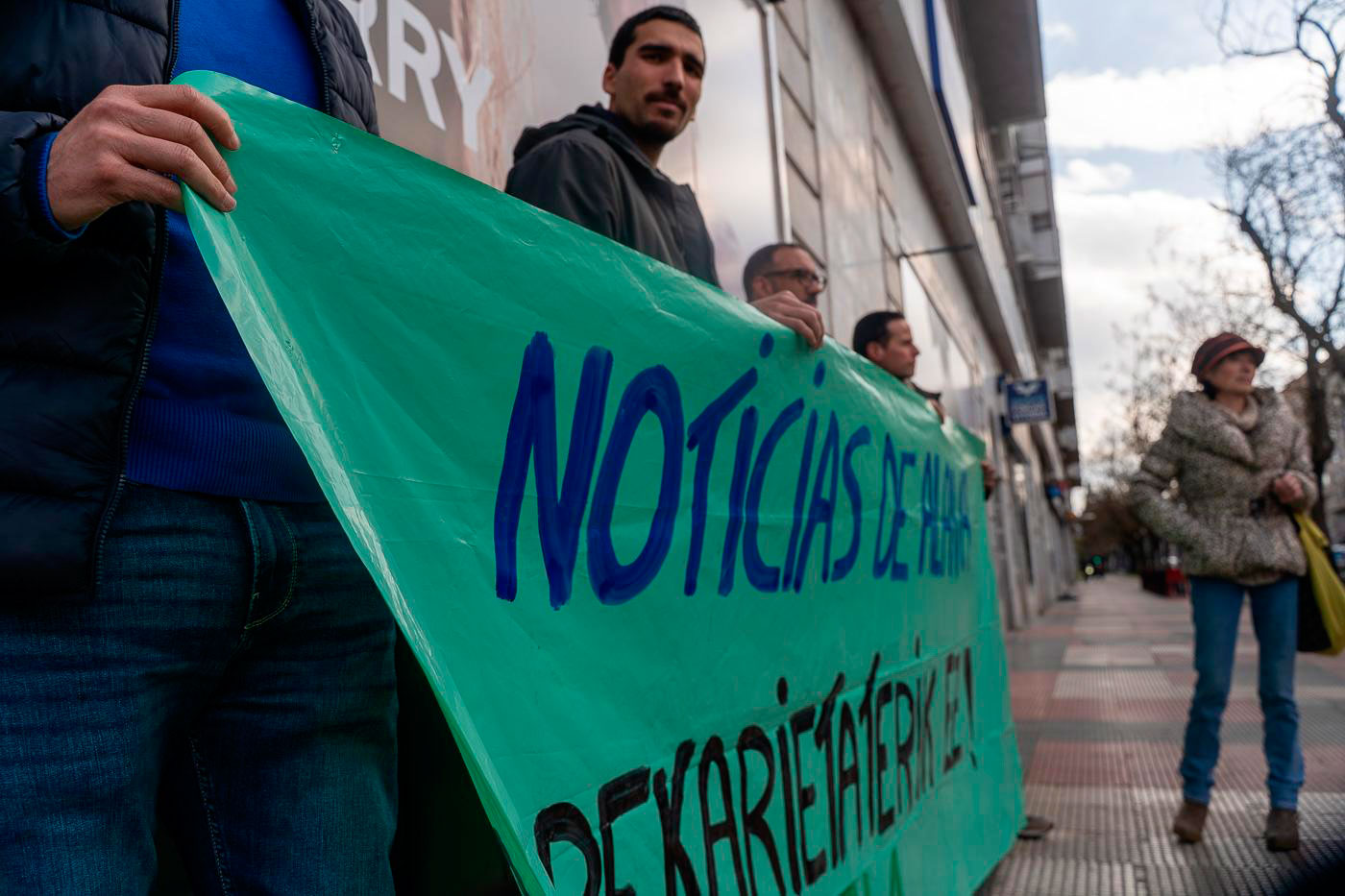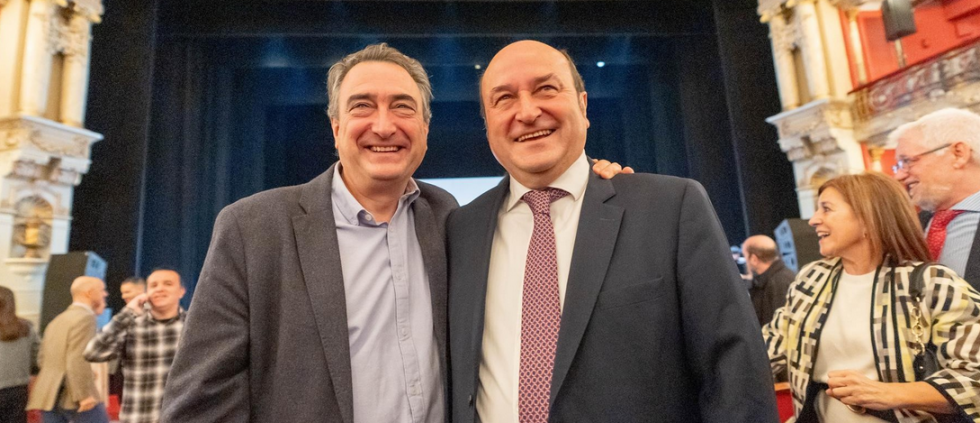“To learn to briefly tell the important news, nothing better than Brussels”
- Always abroad, we tend to be at home. A long time ago, Paris has its nest, so it's informing us at EITB, one on television, one on radio. The clarity of her chronicles has led us to pursue her, following Hamelín's hierulary. In the conversation we started with the intention of knowing what is inside the correspondent...

Olatz Simon Barriers. Bilbao, 1980.
Journalist, reinventor of EiTB in Paris. It started in 2002 on Basque television and in 2005 in Brussels. It has chained Brussels, Beijing, Barcelona, Paris... and where it needs the news. This has led Olatz Simon to never be called a “travelling correspondent.” Today we see our interlocutor on television broadcasters and we hear his voice on the radio. And in both cases, in half a minute it offers us, master, the reasons for the most complicated issues.
Now we have you in
Paris as a EITB correspondent, although before you have walked the world… Yes, I have been in one and the other, always linked to the cities starting with the letter b: I was born in Bilbao, I studied in Berlin and Bremen, the first corresponded that I filled in Brussels, I was in Beijing, we live five years in Barcelona… Paris has broken the path of all my cities.
In the remarks we have gathered about you there was neither Berlin nor Bremen… I first went to Berlin to improve German. I was
18 years old and I was there for five months. Then I studied journalism in Leioa and I was in Bremen in Erasmus. There I did my third year and a little more.
Did you go to Berlin to improve German? Did you know then Basque, Spanish, English…? When I was 18, they started teaching English at ikastola
[Urretxindorra, Bilbao]. Therefore, contact with the first foreign language was English. When I was 15 years old, in the second of the ESO, I had cancer, and that changed my path.
Cancer! I had cancer and I was very nervous. Much of my illness was psychological. I was nervous, and the doctors told my mother that at dusk I had to get into bed totally tired, “I will die, I will die...”, so as not to think. My mother did everything. Meanwhile, he taught me typing. It had a
typewriter where we spent hours and hours playing the keys. Moreover, the mother learned that a private school in the Zabalburu area taught German. Language was also taught in school, but because of some schedule problem, I started studying German at night in that academy. She finished her classes at 22:30 and came home at 23:00.
Fulfilled the objective, completely tired. And the fuck. The days I took the chemo, in the ikastola, English. I don't know what mechanism was triggered in my head, but I took rabies in English. At the ikastola they helped me a lot, but yet I discarded English. & '97; German, on
the other hand, continued studying, although curated. And so I go to Germany.
Excuse me, Olatz. What kind of cancer did you have? Hodgkin lymphoma. I was treated in
Basurto and healed very well. I haven't had many hard experiences in my life, but I think with the separation of my parents it was the cancer that most marked me. I learned to see things differently, to measure time differently. And what I've learned with that vital experience I still have it inside, I haven't forgotten it. The way of looking at life, not giving importance to appearance… because, at 15 years old, that was my first concern.
Looks, you say? Yes. 15
years I, and we were kids and kids, and the biggest worry was losing my hair. Then I realized that that was secondary, that it didn't matter. At the same time, I had as a mother, because it was, and that model of mother also marked me. All of this is maintained until today, and I would like to offer something like this to our children.
.jpg)
"When I was 15 years old, in the second of the ESO, I had cancer and there it changed my path. I had cancer and I was very nervous.”
How did your peers get their disease? At first they didn't understand what was happening to me. At first. Then I remember that I was not treated as
a separate case. And thank you. The day after taking chemo, it used to be affected, but I wanted to go to the ikastola. Put the txapela and the ikastola! I started at ikastola when I wasn't two years old yet, and I left selectively! When I turned 15, the ikastola was also a family! And I still feel the ikastola nearby.
Were your parents Euskaldunes? No. I studied Basque in Urretxindorra. There was no Basque atmosphere in my environment, the
father was of Deusto, a professor of profession, as a father. His father was Mr. Amado, the famous teacher of the Widow of Epalza school. They still tell me in Spanish: “Are you the nephew of Mr. Amado [Simon]?” Her mother comes from Cantabria. No, the parents did not know Euskera, but they did this effort, which I studied in Euskera. And bring school homework, and often parents can't help! And now that I'm a mother, she realizes and I find it hard. And at the same time a pride. Totally militant experience of the 1980s, of parents.
Cancer brought you to study German and German brought you to television. That's why I'm on TV, yeah. I told you, in the third year of journalism, I was in Germany doing Erasmus. In the fourth place it was up to us to do internships, and I ordered my best friend, friend of the ikastola and who was studying journalism like me: “When it comes to processing the request to do internships, you make your request on the side because I am in Germany. In the first option put ‘newspaper’; in the second, ‘radio’; in the third, ‘television’. He
first put the ‘television’ in jokes. As soon as I returned from Germany, I did not have the opportunity to change, because I had occupied all the sites.
And of course, television. Yes. I went to test with others, with my Basque, and nervous, but I moved forward. Then I remember Jaime Otamendi said they needed girls for sports, the announcers. I stole so I didn't have to work in sports. And all of
a sudden, someone out loud: “Who is Olatz Simon? … Would you like to work internationally?” Apparently, they saw that I knew German, which was very rare at the time. He dominated English. That's why I started in EiTB. Then, foreign informer.
Did you want to be a foreign informer? Was that your wish? No, it was my wish or my goal, and it's to tell the viewer things. I'd rather do that than interview anyone. Moreover, when I say something, I have
a time of three or four seconds to make my contribution. I started as an international correspondent, and soon I was caught by the virus, the international correspondent virus, I mean. Today I find it difficult to return to the wording. This is what happens to most correspondents, even if they ever go back to writing, we soon think about going somewhere else.
Why that desire for foreigners? Abroad you are everything: journalist, producer, translator, editor… You
are everything except the camera. The fact that a person does everything has a positive side, but also a negative one, because working with another person implies taking into account their vision in the news, and that is enriching. What we used to do among three people now is done by a single journalist, and in that respect most of the changes that have taken place have been backward.
Who decides what to count and what not? I send the forecasts daily to my international official, Mikel Reparaz. They
are calls from the French Government, or other forecasts with date and time. But we also have “own issues” of the journalist, news that we decided without anyone ordering us, news that does not directly affect the viewer of the Basque Country, but that shows the trends, conflicts, fashions, etc. the society you're in. For example, since the New Year, fast-food franchises in France will not be able to offer their customers food and drink in paper and plastic packaging, so they have had to create a special tableware. This will necessarily mean a significant saving of cardboard. I thought I would tell that story, for example, when I was on vacation in Euskal Herria. Of course, I made the news before and kept it in the freezer, as we say, to issue the relevant day. And so on.
I have read that some informants have worked up to eighteen hours…
Olatz Urkia [EITB correspondent in Asia], at the Beijing Winter Olympics… Yes, our work is without schedules. Sometimes the day comes quiet, sometimes there is no rest. If we have to act on two stations, that is what we have. Sometimes we are in Euskadi Irratia Faktoria at 7:00 hours and in Radio Euskadi at 10:30 hours, among them Egun on the Basque Country, among them Bulevar, the noon news, Baipasa, Messenger, the night news and the chronicles, and prepare the contents of the moment. This is sometimes the case, especially when it comes to elections or unforeseen events. I am not going to argue that we work eighteen hours a day, but there are days when we have to do so. But it's very rare. Fourteen hours, on the other hand, we have done them several times.
.jpg)
When a correspondent has an event, you must feel that he has not been in the place: “Arraioa! Chance! What a pity, I’m not there!”
I work without schedules, as you said. Can't it
be disconnected in your job? I'm always with the phone in my hand. Also on Christmas holidays, when we were from Paris to Bilbao, I read that there was an attack on the Kurds in Paris. That is my “plaza”, Paris is my “plaza”, my ambiance and my responsibility, and when one of those attacks occurs in “your area”, if you don’t feel anything, we are doing it wrong. That does not mean that everything is not left, that the Christmas holidays and the family, and that it comes back to Paris. No. But I think when a correspondent has passed whatever it is, it has to feel like it hasn't been in place: "I take root! Chance! What a pity, I'm not there!" Don’t say, “I’ve freed myself!” When you come to feel like this, to say “I have delivered!”, that is, it’s time to leave the correspondent’s work.
What is reconciliation in your work? In my case, we bet on the family. It wasn't just my decision. I met my husband in Brussels. He is a journalist, correspondent for Catalunya Radio. Being in Brussels, I proposed to EITB the opening of the correspondent in Beijing when the 2008 Olympic Games were at the door. When they told me yes, my husband -- my boyfriend at the time -- said he was going to ask for work leave, because I was going to go to Beijing, opening EITB correspondent. The ones from Catalunya Radio to my husband: “Look, the other! And why don’t you do it yourself and open it for us in Beijing?” And we went together. We still had no
children, and we were at a standstill: attack one, earthquake another… we all told it.
Then they returned to Europe... Yes, I usually say that I have worked in five correspondents: Brussels, Beijing, it was travelling – my third always corresponded to each other – Barcelona, and Paris. I said travelling correspondent because, although I lived in Barcelona, I always lived the suitcase prepared to go where we did not have a correspondent. They're called journalistic skydiving: they send you to a country that you don't know anything, and you can only tell what you see, because you don't have knowledge about what's local, like the background I have now in Paris. But the fact that you know nothing about the situation in Egypt goes to Cairo and counts the Arab Spring also
has its starting point.
We present you in Paris today... In Barcelona the opportunity of Paris
emerged during the pandemic. Until then, my husband had asked for leave and leave, and when we had the opportunity in Paris, we decided between the two: he asked for the biggest reduction in the day and also the weekend shift. I mean, I mean, we made the plan, within the family project, for the two of us to make our way, even in turns. It was the family organization and the generosity of her husband.
What does the good correspondent need? Meet the people in each place, as much as possible, but also, or before, read
a lot. And then, when you tell the news, consider who you're talking to, what your audience is, what interest your message might have in the news item. We are a public entity, we work on information, with limited time and many things are left out. So, I have great programs like the Baipasa de Euskadi Irratia, where I can delve into the news. I really like to talk, you've already heard, ha, ha... and the tertulias come to me very well.
However, when it's in the news, it doesn't have the desired extension. No, that's the hardest thing, what you've seen, what's news, condense it in a nutshell: in
55 seconds of radio, or in 40 seconds of television, tell the news. That is the challenge. And to do it right there is no choice but to do it. “You’re doing it directly and never sweep you!” they tell me, and my answer: “No? I’ve done the same thing 20,000 times and I still get mud!” But it is true that the former were not like that, they were much less.
Much less? In 2009 he received the Rikardo Arrangi Journalism Award! Because China was fashionable at that time!… Receiving that prize was very
important to me, because there was our mother, who does not even know Basque, for two hours listening to everyone’s lectures. My award was the result of the parents’ leap of faith. I was not happy with the Basque level of my time and yet I received the prize, much more important to me than receiving a prize in Spanish.
You started reporting in Brussels, and since then you have been there. However, they say that this is the city among the correspondents. What does Brussels have? On the one hand, very bad fame, that has to be removed. They say, "Do you have
more Paris than Brussels?" I prefer Brussels. It was my first correspondent, and that necessarily marks you. I was a journalist in Brussels at the age of 24. My peers and friends then are the best professionals and friends of all time, or the best. Grisela Pastor, Alfonso Sánchez, Carles Prats, my husband [Nando Zanoguera]… are excellent journalists. I have not seen the family in Brussels being done elsewhere.
The family of Brussels. For the attention of the European Commission, at 7 a.m., four degrees below zero, waiting for the minister to record what he is going to say… That helps greatly to make a
family. I studied a lot in Brussels, for example working on strange subjects, and they helped me a lot. To learn how to count on one of the important issues in half a minute, there is nothing like the school in Brussels: big directives, deep proposals, long summits from Brussels, and we have to have news briefly with many nuances. And for that, to learn to briefly tell the important news, nothing better than Brussels. You have heard a journalist say that there are many correspondences, but it is always Brussels that decides.
* * * * * * *
Beying
“At that time we had a collaborator, Sergi Vicente, informer of TV3. When something big happened, I also worked for Teleberri, but not for Gaur Eguna. But it seemed to me that China was taking weight, so much weight, and I thought we had to teach it. It was therefore not an exclusive incident of the Winter Olympics. Jaime Otamendi was the head of the news, Mikel Reparaz, head of radio news. I proposed to them to be Chinese correspondents, and they asked me not only for television work, but also for radio work. And so.”
To be a correspondent
“I get a lot of messages sent by the young people: ‘Hi, Olatz, I admire you a lot, I follow you… what should I do to be a correspondent?’ I always say the same thing: ‘Save and go to where there is no one’. Formerly Russia. ‘Maybe the first don’t buy you news, but you follow’. It’s not easy, they strive hard to freelance there and here, and it’s getting harder and harder.”
LAST WORD
Master
“We are ‘master in everything, master in nothing’. Suddenly, from Paris to Kortsika, from another to the football competition… In the end, the correspondent’s work gives you tools to get out of any situation.”
Apirilaren 24an, ETB1ean, jendeak aspalditik eskatzen zuen programa eredu bat estreinatuko da: Linbo, late night formatuko ordubete inguruko saioa, gazteek eta gazteentzat egina.
"Ask for your turn and we'll join you," the willing and cheerful announcer who speaks from the studios tells the young correspondent who walks through the streets of Bilbao. The presenter immediately addressed the audience. "In the meantime, we are going to Pamplona..." They opened... [+]
I have to confess a sin here. Four years ago, I introduced a new habit into my life: on Sunday nights, I began to watch the ultra-right television channel CNews, which spreads continuous "information" like a cannon of shit. What was at first half an hour a week, has at any given... [+]
Martxoaren 14an Donald Trumpek agindu exekutibo bat sinatu zuen, hainbat berri agentziak jasotzen duten diru kopurua asko murrizteko. Kaltetuetako bat United States Agency for Global Media (USAGM) izan zen eta, ondorioz, Voice of America (VOA), Radio Free Europe/Radio Liberty... [+]
2022ko ekainaren 7an, Directa-k serie luze bateko lehen polizia infiltratuaren kasua argitaratu zuen. Martxoaren 5ean, Belen Hammad fikziozko izena erreta geratu zen, polizia-argotean dioten bezala. Jada hamar dira Directa, El Salto eta El Diario-k azken hiru urteetan argitara... [+]
USAIDen inguruko txolopotearen ondoren, espero beharrekoa zen. Baina, hala ere, urte askotan haien jarraitzaileak izan garenok, samin-puntu batekin hartu dugu albistea. Martxoaren 15ean, Trump administrazioak, kolpetik, erabat itxi baitu United States Agency for Global Media... [+]
Varsoviako Barrutiko Auzitegiak argudiatu du González jada ez dagoela Polonian, eta ezin dutela jakin noiz aterako den Errusiatik. Auzitegiak ez du kazetari nabarniztarraren aurkako bestelako prodezurarik abian jarriko.
Gaur abiatu da Bizi Baratzea Orrian kide egiteko kanpaina. Urtaro bakoitzean kaleratuko den aldizkari berezi honek Lurrari buruzko jakintza praktikoa eta gaurkotasuneko gaiak jorratuko ditu, formato oso berezian: poster handi bat izango du ardatz eta tolestu ahala beste... [+]
Alemaniako Poliziak asteleheneko gertakariaren arrazoiak "politikoak" zirela baztertu duen arren, 35 urteko Alexander Scheuermann Ring Bund talde neonaziko kide zen. Bi hildako eta hamar zauritu utzi dituen atentatuaren egileak sare sozialetan "gorroto mezuak"... [+]
Lan baldintzen "prekarietatea" salatzeko kontzentrazioa egin zuten asteartean egunkariaren egoitzaren aurrean. Abenduaren 2tik sindaura greban daude langileak eta mobizlizazioak "areagotzea" erabaki dute orain.
Urtea baino gehiago da Olatz Simonek –EITBko berriemailea Parisen, garaian–, orrialde hauetan bertan ohartarazi zigunetik Bruselak kazetariari lanbideaz erakusten dionaz. Eta halaxe joan gatzaizkio galdezka Amaia Portugali. Bruselan gure irrati publikoak duen... [+]
Langileek salatu dute zuzendaritzak ez diela lan baldintzen gaiari heldu nahi izan eta enpresak nahiago izan duela Gaztea Sariak ekitaldia bertan behera utzi, “horrek sortutako albo-kalte ekonomiko eta sozial guztiekin”, arazoari irtenbidea eman baino.
Joan den asteartean La Vanguardia-n argitaratutako artikuluan egin zuen proposamena Txema Montero abokatu bizkaitarrak. 30 urtez Deia egunkariko kolaboratzailea izan da eta lehenik hara bidali zuen bere artikulua, baina egunkariak ez zion argitaratu.









